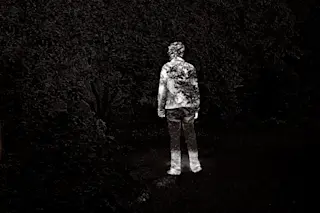Rita Magil was driving down a Montreal boulevard one sunny morning in 2002 when a car came blasting through a red light straight toward her. “I slammed the brakes, but I knew it was too late,” she says. “I thought I was going to die.” The oncoming car smashed into hers, pushing her off the road and into a building with large cement pillars in front. A pillar tore through the car, stopping only about a foot from her face. She was trapped in the crumpled vehicle, but to her shock, she was still alive. The accident left Magil with two broken ribs and a broken collarbone. It also left her with post-traumatic stress disorder (PTSD) and a desperate wish to forget. Long after her bones healed, Magil was plagued by the memory of the cement barriers looming toward her. “I would be doing regular things — cooking something, shopping, ...
Past Imperfect
Every time we call up a memory, we also rewrite it. Can we trust what we think we remember?
More on Discover
Stay Curious
SubscribeTo The Magazine
Save up to 40% off the cover price when you subscribe to Discover magazine.
Subscribe














